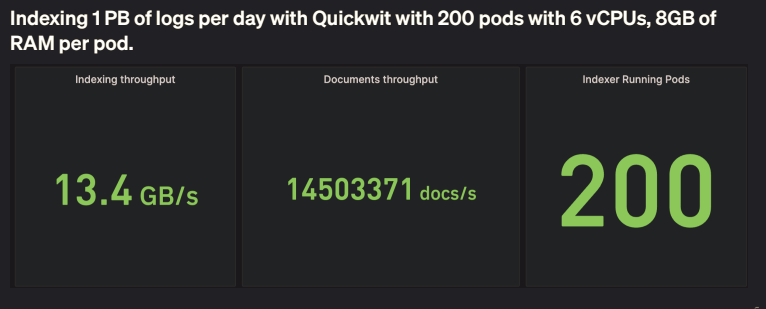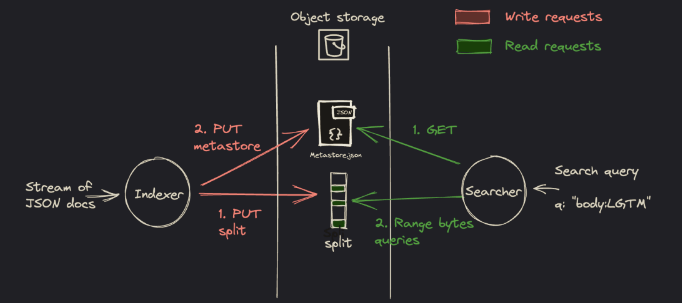Quickwit is an unparalleled cost-efficient log search engine designed to solve scaling issues in actual log search solutions.
Those issues are mainly originated by the exponential grow of all data, including log datasets: in a data-driven world, terabyte datasets are the new standard. And large tech and cybersecurity companies already need to manage petabytes of logs.
This mean that:
- Infrastructure costs are prohibitive at terabyte and petabyte scale
- Cluster management is overly complex
- Indexing is slow and unstructured logs are poorly handled
Quickwit is fast, scalable, and reliable at petabyte-scale:
- Built in Rust, and powered by Tantivy, a leading search engine library maintained by Quickwit.
- With decoupled compute and storage (all data on object storage)
- Stateless
- Schemaless
Quickwit is at least 10x more cost-efficient than existing solutions and you don’t need a whole team to manage petabytes.
Quickwit architecture is scalable and efficient and it’s mainly divided in two parts:
- Indexing process: Creates split files from JSON documents and uploads them to the object storage.
- Search process: Sends precise range bytes queries to splits.
And there is still space for improving, according with their roadmap:
- April 2024: Distributed ingest
- High-throughput indexing on tens of thousands of indexes.
- Q2 2024: OpenSearch Dashboard support
- Enable OpenSearch users to migrate seamlessly to Quickwit with their existing dashboards.
- Q3 2024: Pipe-based query language
- Introduction of a flexible and powerful query language similar to SPL (Splunk Query Language)
- Q4 2024 – 2025: Metrics support
- New storage engine optimized for time series data.













